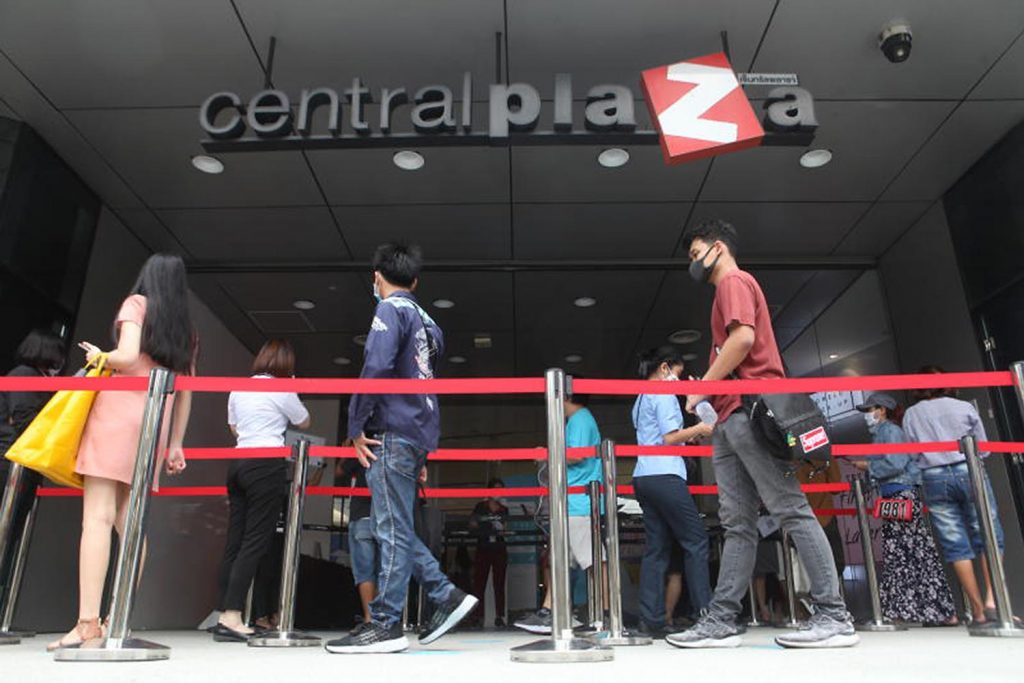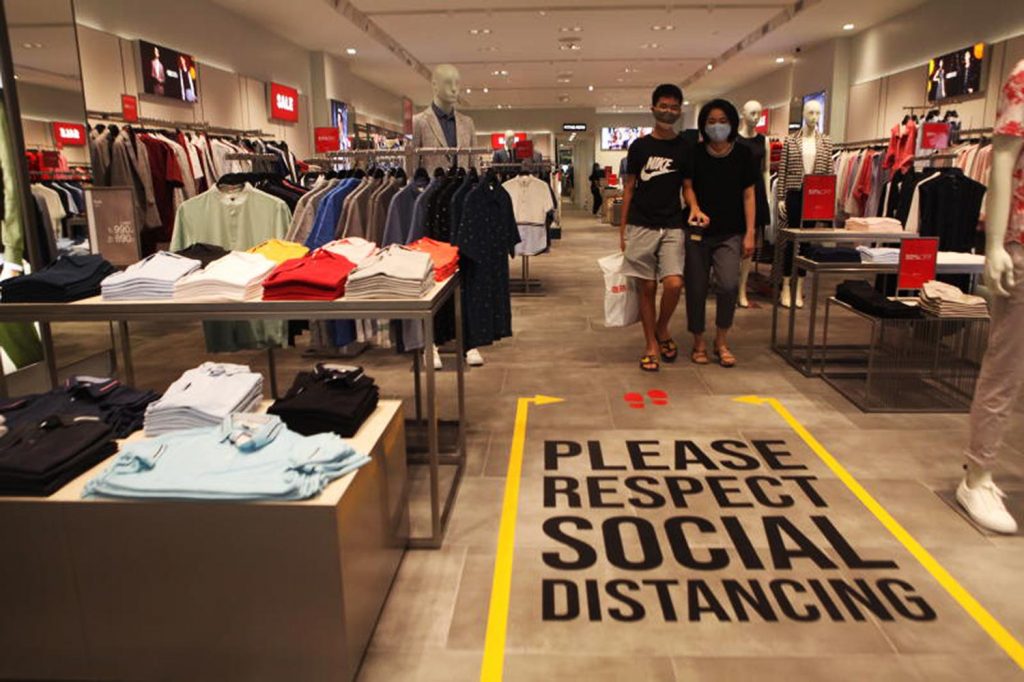
COVID-19 has disrupted everything with a whiplash effect. The science is unsettled, there’s no single approach by governments, and news coverage is schizophrenic. Let’s examine what is expected for society, community, family, and personally.
Working Definitions
A prediction offers a statement of what will happen in the future based on an inference of events or knowledge. An expectation has something added to the prediction: a state of readiness, a mind-set, for an event about to happen. In the case of the current pandemic, determining expectations and personal reactions are akin to the seven stages of grief: shock, denial, anger, bargaining, depression, testing, and acceptance.
The Wizards
To consider what lies ahead, and to fast track to the acceptance stage, we reached out to thought leaders around the world, including a former Deputy Director at the Bill & Melinda Gates Foundation with a Harvard Ph.D., an entrepreneur developing software for a global real estate online platform and virtual ecosystem, a UK-based food and hospitality expert advising leading hotel chains for post-COVID-19 readiness, and a Thailand-based Buddhist professor with extensive scholarly credentials. We’ve selected the most interesting range of expectations and add our personal expectations.
Here’s what we might expect.

Society: Expect our Rights to be Re-set
Governments knew that a global pandemic was possible, but there was no readiness. The proverbial phrase: This was not a black swan; it was a grey rhino.
Governments reacted postpartum with a comprehensive business shutdown instead of targeted protection to those most vulnerable. They mandated restrictive policies to flatten the curve, some more draconian than others. Collectively, they appear to try an economic solution to a health problem.
Taking a broad view, think about the choice we have in front of us. Which would you rather:
– Go back to business-as-usual (more deaths, especially amongst the elderly and vulnerable; and fear of social engagements until herd immunity is achieved)
– Lock-down for all until we have a vaccine (with economic catastrophe)
– Asian-style tracking (mass government surveillance, as started by China, South Korea, Singapore, and Taiwan)
– Expect governments to drive us to the third option. We’ll slide right into a new regime of mass government surveillance. We´ll thank our authorities for it! They´ll present it as having our cake (health security) and eating it too (less economic disruption).
– The strategy, quite possibly, is a temporary lockdown with two purposes:
– let fear extend
– prepare the systems for mass surveillance
Initially, reports focused on the daily COVID-19 death totals without detailing demographic breakdown. Without information, there is no insight, only fear. The lockdown in varying degrees will remain until Big Brother 1.0 – not the vaccine – is ready. Expect Big Brother to come faster than the vaccine.
This is what makes the authorities comfortable with putting in place mechanisms to address a V-shaped recession: it is “fundable” for some months through bailouts of corporates and workers alike. Then mass surveillance begins, and we will move into a different socio-political arrangement.
It’s Orwell wrapped in Kafka inside John Le Carre. Security above everything. And hierarchy as a way of delivering it. For those still skeptical, we share with you what is already happening in Europe.
Spain and other countries in the European Union have restricted freedom of movement of its citizens to one kilometer from home. Further, there are more than ten additional restrictions on movement, most of which carry a minimum fine of 1,500 Euros per act.
For those fortunate to have a second home for vacation, travel between residences is another fine of 1,500 Euros. Celebrations are forbidden too. Each person in attendance is subject to a fine of 10, 400 Euros. Fines are issued on the spot. Recipients are advised to remain courteous with the administering official or receive an additional 1,500 Euro fine.
The granularity of restrictions rises to a black comedy. Picture this: a family of four is not allowed to venture out for a neighborhood stroll. Only one parent with the kids per time out and the venture must fit one of the five designated time blocks based on age group. After being locked up in the same home for hours, husband and wife cannot stroll together, though neither may complain about that.
At the end of April, nearly 800,000 citizens were sanctioned and nearly 7,000 detained. Kafkaesque bureaucracy is not only a precursor of what is possible, it’s expected because it’s already here. If this is happening in Europe, normally a beacon for progressive thinking on human rights, then expect other countries to over-determine and overreach with their health surveillance regulations.
In sum, expect privacy and personal movement rights to be re-set.
Community: Moving In, Out, and Around
To continue with a movement theme, let’s examine expectations for movement from one community to another and movement within a community.
All Real Estate is Local.
Real estate transactions have come to a standstill while social distancing is in place. Once social distancing subsides, real estate professionals expect a spike in transactions. Work from home policies and the economic impact on personal budgets are triggers for relocation.
Buyers and sellers expect better online content to confidently qualify properties. Digitization of real property assets for virtual viewings with 3D immersion with near-online gaming quality is emerging in the industry. Transactions will still require a site visit; however, the number of site visits will be reduced. Buyers will ask, Do you have a 3D immersion before I visit?
Restaurants are about the neighbourhood.
Restaurants give neighborhood identity. Unfortunately, many restaurants will not sustain the economic fallout. Further, as business resumes, social distancing requirements have dealt with business plans a Mike Tyson punch in the face.
Despite a shrinking market, restaurants will need to stand out even more to attract customers. All restauranteurs will try to solve this problem: How to continue to deliver a memorable dining experience? Restauranteurs will pivot to different business models, from remodeling interiors for private seating rooms to grab-and-go and click-and-collect.
Industry insiders expect restaurants to strengthen customer relationships. There are stories of the symbiotic bond between restaurants and the community. Communities are supporting their local restaurants by ordering take-out, purchasing vouchers, and buying fruits and vegetables direct from the restaurant instead of the big chain grocery stores.
Imagine shorter menus, but menus mapped to customer feedback, a previously neglected area. McDonald’s will be a guiding model, with its finite menu and lean supply chain. Costs remain low, food waste is minimized, and local supplier relationships are maximized. Marketing campaigns can emphasize exclusivity and all things local.
Family: What’s for Dinner?
What’s for dinner? is the most commonly asked question. Cooking at home will be more commonplace for safety and budget reasons. Whether kitchens will be newly stocked with pots and pans and appliances is a matter of individual culinary enthusiasm.
Andrea Stewart, an international food consultant, expects to see a rebirth in catering. Hosts will want to create memorable dining experiences at home without the stress of cooking. Catering can meet a range of budgets and formats, with options ranging from pre-cooked meal drop-offs to private chefs who will cook with flair on-premises.
Personally: Less is Fine
Personally, I’ve enjoyed less consumption during the lockdown. Dividing my consumption into what is essential, and what is a lifestyle, we’ve learned to purchase only what we need and enjoy life just the same. Less is not more, but less is fine.
Not everyone is aligned on desires or affordability for consumption, but if everyone is more prudent, then globally, it would lead to a more sustainable economy on a planet with finite resources.
Conclusions
COVID-19 brings revolutionary change, comprehensive and dramatic. What we expect from governments and how we expect to interact with others as we produce and consume gives rise to existential considerations. Expectations do not imply that we want certain things to happen, only that we think something will happen and then be ready for it. Expectations don’t provide answers, but they lead us to focus on the right questions.
Buddhist Philosophy Professor Frank Hoffman says we need questions to make our lives meaningful. Unprecedented times require pause as to how we give meaning to our lives. Privacy, security, and community relationships are important issues. Larger issues are at stake too. Will we, for example, be conditioned to accept large numbers of deaths in order to sustain some level of economic success? To what degree is the over 60 generation fundable or expendable?
Author: Greg Beatty, J.D., Business Development Consultant. For further information please contact gregfieldbeatty@gmail.com
